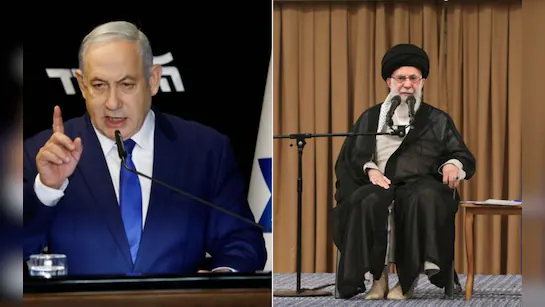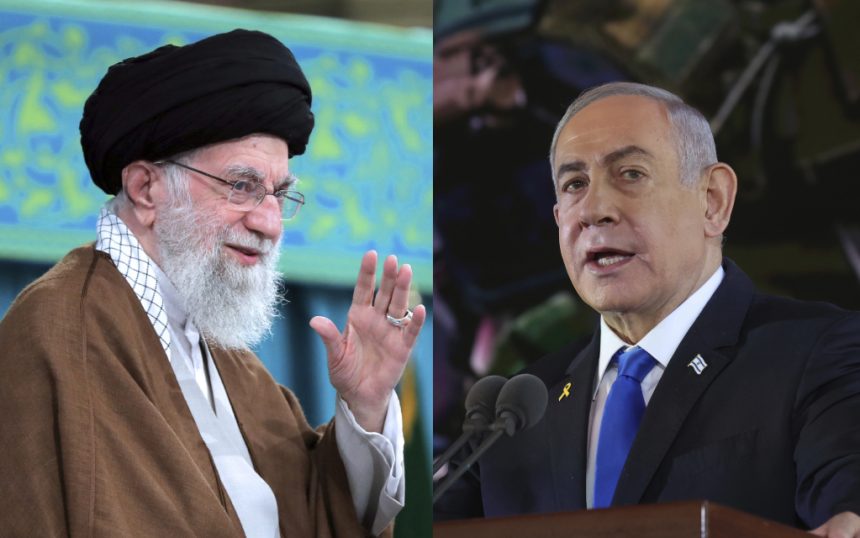In a heated response to recent developments, Iran’s Supreme Leader Ayatollah Ali Khamenei expressed his dissatisfaction with the International Criminal Court’s (ICC) arrest warrant for Israeli Prime Minister Benjamin Netanyahu.
Speaking in Tehran on Monday, Khamenei dismissed the warrant as insufficient, calling instead for a “death sentence” for Netanyahu over alleged war crimes committed during the Gaza war.
The ICC’s warrant, issued last week, marks a significant moment in international justice. The court’s judges stated there are “reasonable grounds” to believe that Netanyahu, along with former Defense Minister Yoav Gallant, bears responsibility for acts that constitute war crimes, including using starvation as a method of warfare and targeting civilians in Gaza.

Addressing members of the Basij paramilitary force in Tehran, Khamenei was emphatic: “They issued an arrest warrant for him, it’s not enough. The death sentence of these criminal leaders should be issued.”
Khamenei’s remarks underscore Tehran’s hardline stance toward Israel, a nation Iran does not recognize and has long opposed. The Supreme Leader described Israel’s military actions in Gaza over the past 13 months as “not a victory but a war crime,” reiterating his call for the eventual destruction of what he referred to as the “Zionist regime.”
READ ALSO: Solana Breaks Records: Surpasses $100 Billion Monthly DEX Trading Volume
The ICC’s jurisdiction, while far-reaching, has limitations. The Hague-based court can impose prison terms of up to 30 years or, in exceptional circumstances, life sentences, but it cannot issue death penalties. The arrest warrant for Netanyahu has theoretical implications for his international mobility, as the 124 ICC member states are obligated to detain him if he enters their territories.

However, key nations, including Israel, the United States, China, and Iran, are not members of the ICC and are not legally bound by its rulings. Despite this, ICC Prosecutor Karim Khan has urged both member and non-member states to collaborate in upholding international law.
Iran has been a staunch supporter of armed resistance movements in the region, including Hamas and Lebanon’s Hezbollah. Hamas’ surprise attack on Israel on October 7, 2023, which triggered the current war, has intensified the spotlight on these alliances. Iranian-backed Hezbollah militants have also been engaged in fighting against Israeli forces along the Lebanese border.
READ ALSO: South Korean FSC Rejects Immediate Plans for a Bitcoin Reserve Amid U.S. Crypto Optimism
While Khamenei emphasized Iran’s support for these groups, he maintained that Iranian forces have largely refrained from direct involvement in the ongoing conflict. However, he warned that the “Zionist regime” would eventually face destruction, signaling Tehran’s unwavering opposition to Israel’s policies and existence.
The ICC’s arrest warrant and Khamenei’s inflammatory statements come at a time of heightened tension in the Middle East. The call for a death sentence by a prominent leader like Khamenei could escalate hostilities and further polarize the region.

Meanwhile, Netanyahu’s potential arrest remains a distant possibility, given the ICC’s lack of enforcement power and the political complexities surrounding international law. As the conflict continues, the court’s actions and Khamenei’s rhetoric highlight the growing challenges in addressing allegations of war crimes amid deep-seated regional animosities.
This latest development underscores the delicate balance between pursuing justice on an international stage and managing the volatile dynamics of Middle Eastern geopolitics.

